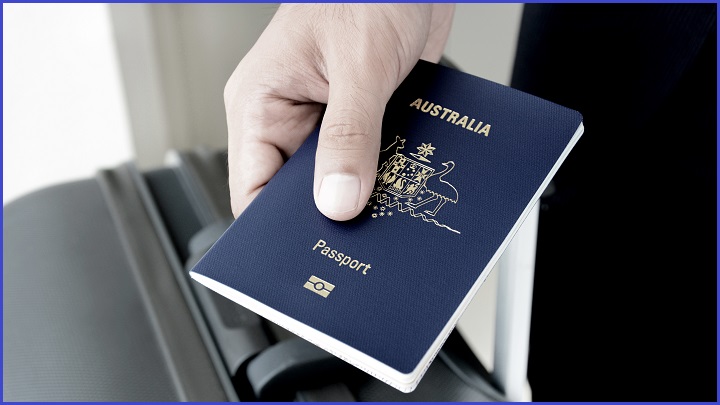The government is preparing a QR-code vaccine passport system that will allow for quarantine-free international travel and which could be expanded to include domestic travelers.
Nine’s metro news outlets broke the story on Wednesday morning based on comments from an unnamed “senior government figure” who broke cabinet confidentiality to leak the information.
Cabinet last week got behind a proposal for the vaccine certification system that would tie together data about people’s vaccination status and border declarations.
According to Nine, the system would use visible digital seal technolgoy developed by the United Nations’s aviation agency ICAO, letting users show a QR code to securely verify their vaccination status when travelling.
The government is set to bring the certification method for international travellers by October but is wary of internal opposition to making the QR vaccine passport a requirement for domestic travel.
Coalition members have already flagged disapproval including South Australian Senator Alex Antic who said domestic vaccine checks would be “an incredibly slippery slope and may well set a precedent for further discrimination in the future”.
Your COVID-19 vaccination status can already be put on your iOS or Android device in the form of a certiciate that appears in Apple or Google Pay wallets.
Today's Medicare app update allows you to add your COVID-19 digital certificate to Apple Wallet pic.twitter.com/37cGDM46fc
— Tap Down Under (@TapDownUnder) July 31, 2021
Recent outbreaks of the Delta strain in Sydney and South East Queensland have led governments around the country to the conclusion that lockdowns and restrictions alone cannot contain the virus – vaccination is the only way out.
70 per cent vaccinated
At a national cabinet meeting last Friday, the premiers and government agreed to a target vaccination rate of 70 to 80 per cent before the need for lockdowns can come to an end.
That figure was based on modeling from the Doherty Institute and suggests the target could be reached by Christmas – something Lieutenant General John Frewan, coordinator of the National COVID-19 Vaccine Taskforce, said is achievable.
“Mathematically we can get there,” he said a press conference on Wednesday. “I think we’ll have the supply; we’ll have the distribution nodes.
“But it really is about people in Australia coming forward with some urgency to get vaccinated.”
Tourism Minister Dan Tehan was quoted last week as saying unrestricted travel – powered by a digital vaccine certification system – could help encourage vaccine uptake.
“Obviously, there’s a very good incentive, you don’t want to get sick,” Tehan said.
“But as another further incentive, enabling people to move freely, initially within our own country – and then potentially once we open up, to be able to move more freely overseas – I think is another very good incentive as to why Australians should want to get vaccinated.”
Earlier this week the government knocked back Labor’s idea of giving $300 to Australians fully vaccinated against COVID-19.
The kind of vaccine passport being mooted by government is already functional overseas. In England, the NHS COVID Pass lets passengers return from international travel to certain countries without needing to quarantine.
Israel released an app in February that lets vaccinated citizens – or people who otherwise have immunity – go into places like gyms, pubs, and restaurants.
Not everyone is happy with the idea of vaccine passports, however, notably in France where around 200,000 people turned out to protest the health pass that, as in Israel, is required for entering certain venues.










